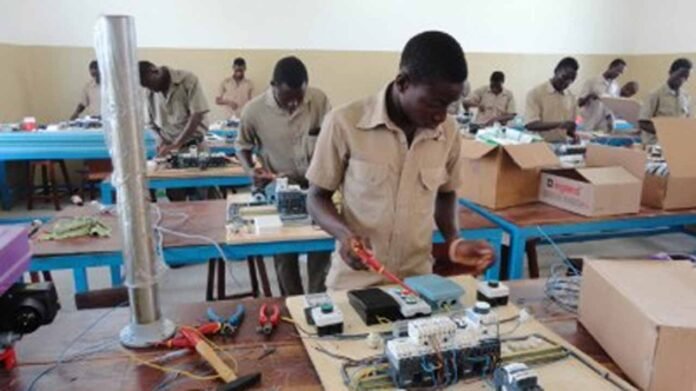The Federal Government has rolled out a sweeping reform of technical education, unveiling 26 approved trade areas to be taught in Federal Technical Colleges. The changes take effect from the 2025/2026 academic session.
A statement by the Ministry of Education’s Director of Press, Bon Folasade, confirmed that all Federal Science and Technical Colleges will now be converted into Federal Technical Colleges. Each college must run between six and ten approved trades.
Education Minister, Dr. Maruf Alausa, and Minister of State, Professor Suwaiba Sa’id Ahmad, said the new system would cut down subject overload while building practical skills.
“The reform is designed to reduce overload, build strong trade competencies, align with global standards, and prepare young Nigerians for the jobs of the future,” the ministry declared.
New Curriculum Structure
Students will now offer nine to ten subjects. These include one core trade, five to six general subjects, two to three trade-related courses, and an elective.
The curriculum also introduces Citizenship and Heritage Studies, alongside core science and language subjects, while prioritising trades that reflect Nigeria’s changing economy.
The 26 approved trade areas are:
- Welding and Fabrication
- Plumbing and Pipefitting
- Electrical Installation
- Carpentry and Joinery
- Painting and Decorating
- Bricklaying, Blocklaying, and Concreting
- Refrigeration and Air Conditioning
- Motor Vehicle Mechanics
- Autobody Repairs and Spray Painting
- Auto Electrical Works
- Machine Woodworking
- Furniture Making
- Upholstery
- Catering Craft Practice
- Garment Making
- Textile Trade
- Printing Craft Practice
- Photography
- Graphic Design
- Computer Craft Studies
- Radio, Television, and Electronics Work
- GSM Maintenance and Repairs
- Animal Husbandry
- Fisheries
- Data Processing
- Marketing
By targeting skills in construction, agriculture, digital services, energy and manufacturing, the government hopes to prepare students for industries of the future.
But will the colleges have the infrastructure and teachers to deliver this ambitious reform? Share your thoughts in the comments.
The reform also mirrors global trends, as countries like Germany and Singapore have strengthened vocational education to match labour market needs.
Rate, Like 👍, Comment💬, share this article, Follow us on our social media handles, and Submit your own story to get featured and earn rewards!







